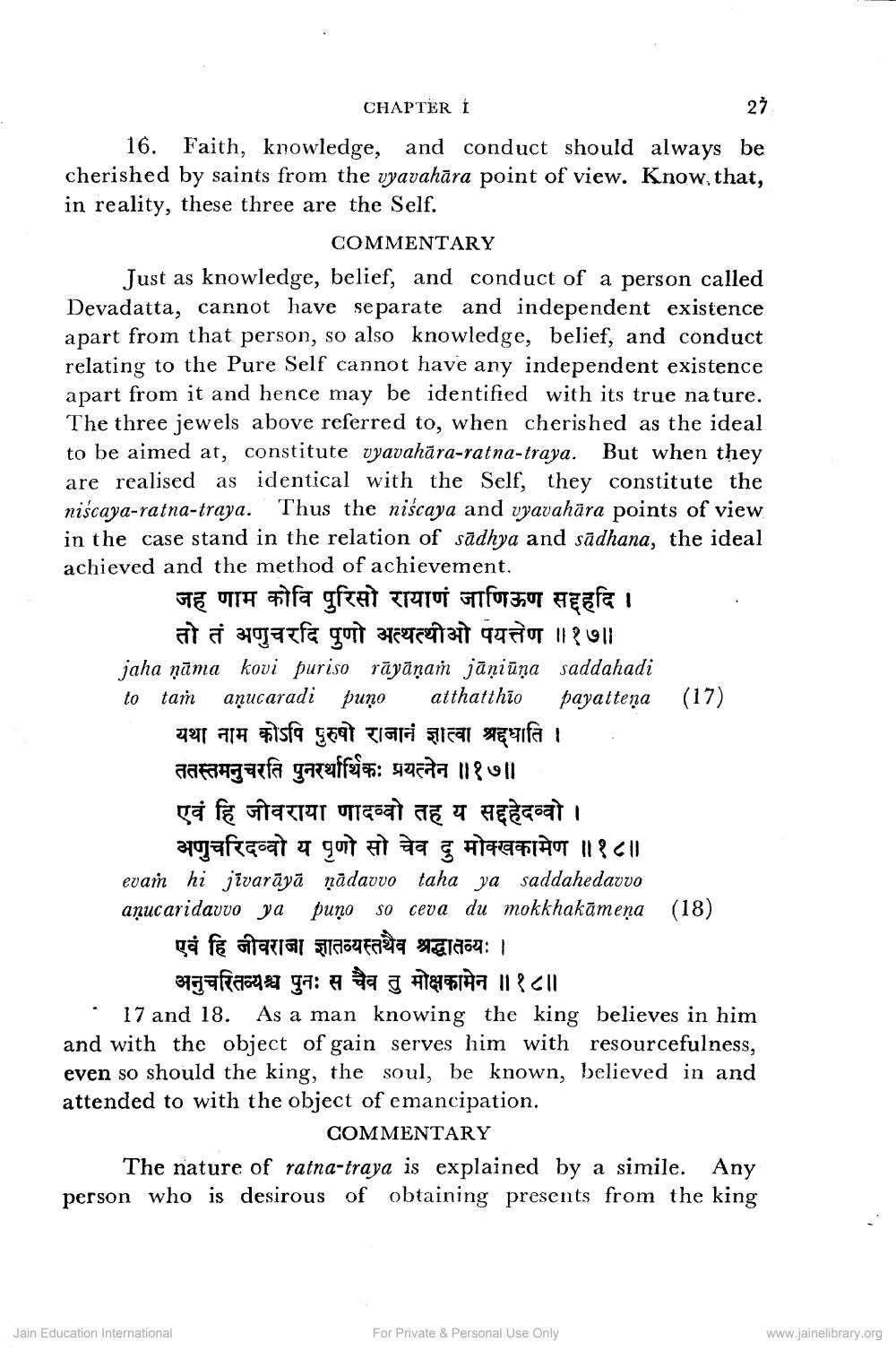________________
CHAPTER Í
27 16. Faith, knowledge, and conduct should always be cherished by saints from the vyavahāra point of view. Know that, in reality, these three are the Self.
COMMENTARY Just as knowledge, belief, and conduct of a person called Devadatta, cannot have separate and independent existence apart from that person, so also knowledge, belief, and cor relating to the Pure Self cannot have any independent existence apart from it and hence may be identified with its true nature. The three jewels above referred to, when cherished as the ideal to be aimed at, constitute vyavahāra-ratna-traya. But when they are realised as identical with the Self, they constitute the niscaya-ratna-traya. Thus the niscaya and vyavahāra points of view in the case stand in the relation of sādhya and sādhana, the ideal achieved and the method of achievement.
जह णाम कोवि पुरिसो रायाणं जाणिऊण सद्दहदि ।
तो तं अणुचरदि पुणो अत्थत्थीओ पयत्तेण ॥१७॥ jaha ņāma kovi puriso rāyāņam jāņiūņa saddahadi to tam aṇucaradi puno atthatthio payatteņa (17)
यथा नाम कोऽपि पुरुषो राजानं ज्ञात्वा श्रद्दधाति । ततस्तमनुचरति पुनरार्थिकः प्रयत्नेन ॥१७॥ एवं हि जीवराया णादवो तह य सद्दहेदव्यो ।
अणुचरिदव्वो य पृणो सो चेव दु मोक्खकामेण ॥१८॥ evam hi jīvarāyā ņādavvo taha ya saddahedavvo aņucaridavvo ya puno so ceva du mokkhakāmeņa (18)
एवं हि जीवराजा ज्ञातव्यस्तथैव श्रद्धातव्यः ।
अनुचरितव्यश्च पुनः स चैव तु मोक्षकामेन ॥१८॥ • 17 and 18. As a man knowing the king believes in him and with the object of gain serves him with resourcefulness, even so should the king, the soul, be known, believed in and attended to with the object of emancipation.
COMMENTARY The nature of ratna-traya is explained by a simile. Any person who is desirous of obtaining presents from the king
Jain Education International
For Private & Personal Use Only
www.jainelibrary.org




